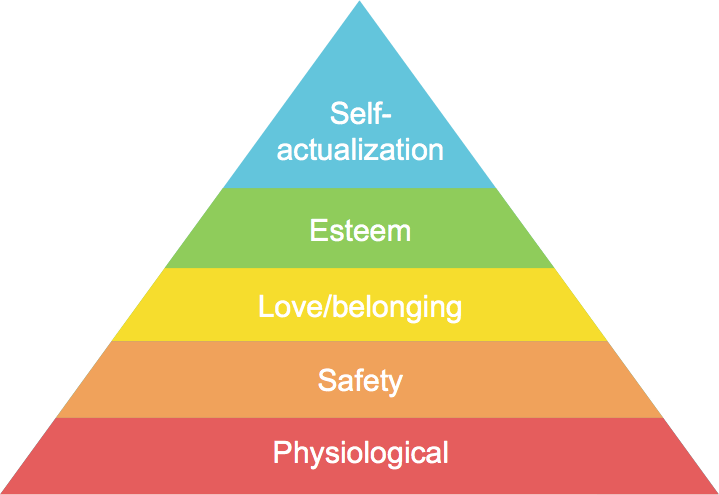Psychology of Needs
Episode #7 of the course Understanding needs by Ryan Watkins, PhD
It is challenging to truly understand needs without exploring their role in our psychology. There are two dominant psychological theories that relate to needs, each of which are quite popular since they are taught in most introductory psychology classes. Both are theories of motivation, and thus each is valuable to our understanding of needs in the context of making decisions.
Hierarchy of Needs
In 1943, Abraham Maslow offered what is likely the most recognizable psychological framework related to needs. Based on his studies of exemplar individuals, his hierarchy of needs identifies the things and states (such as food, love, esteem, and friendship) that motivate us. His theory suggests that you must meet your basic-level needs (such as food and shelter) before you will be motivated to focus on higher-level needs (such as love, morality, and creativity). Though elegant and easily applied, up to this point research has not substantiated the proposed hierarchical relationships.

Maslow’s hierarchy of needs, represented as a pyramid with the more basic needs at the bottom.
Self-Determination Theory
This theory focuses on the choices we make by examining the degree to which our behavior is self-motivated and self-determined. Developed by Edward Deci and Richard Ryan, the theory posits that our needs for competence, autonomy, and psychological relatedness motivate our behavior. In addition, it states that fulfilling these needs is essential to our psychological health and well-being.
Within the theory, the three essential needs above are universal and innate. All of us have these needs in common, and they are absolute; that is, they are not instrumental for achieving any further goal or purpose. It has also been proposed that competence and autonomy are the basis of intrinsic motivation and most shape our behavior.
Of all theories related to needs, Self-Determination Theory is easily the one supported by the most empirical research. The body of research indicates, as the theory suggests, that attaining competence, autonomy, and psychological relatedness is linked to our psychological health and well-being. Whether or not these are universal absolute needs is more of a philosophical question than one for empirical research.
Today’s Main Points
1. Maslow’s hierarchy offers a model for relating a variety of needs, though the relationships have not been substantiated by research.
2. Self-Determination Theory proposes that everyone shares the same basic need for competence, autonomy, and psychological relatedness.
Today’s Activity
Take another look at Maslow’s Hierarchy of Needs from the lesson. Does it reflect what motivates you? How would you prioritize the things that motivate you most?
Today’s Resources
Article on the psychology of needs by Ken Sheldon
Share with friends

